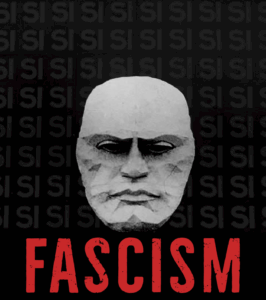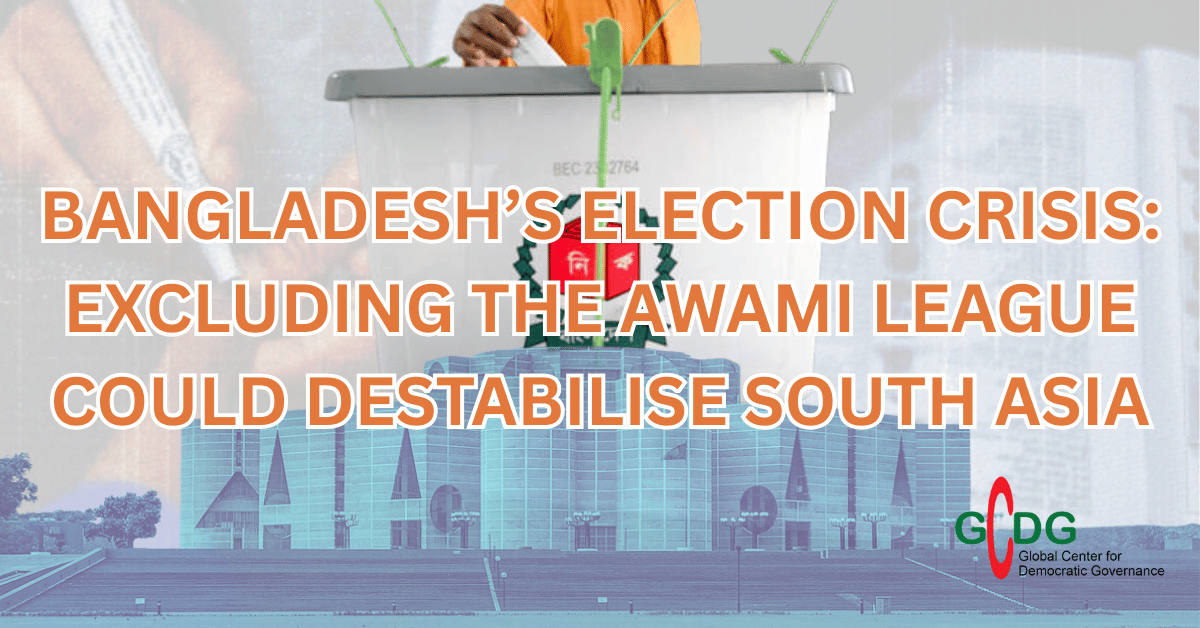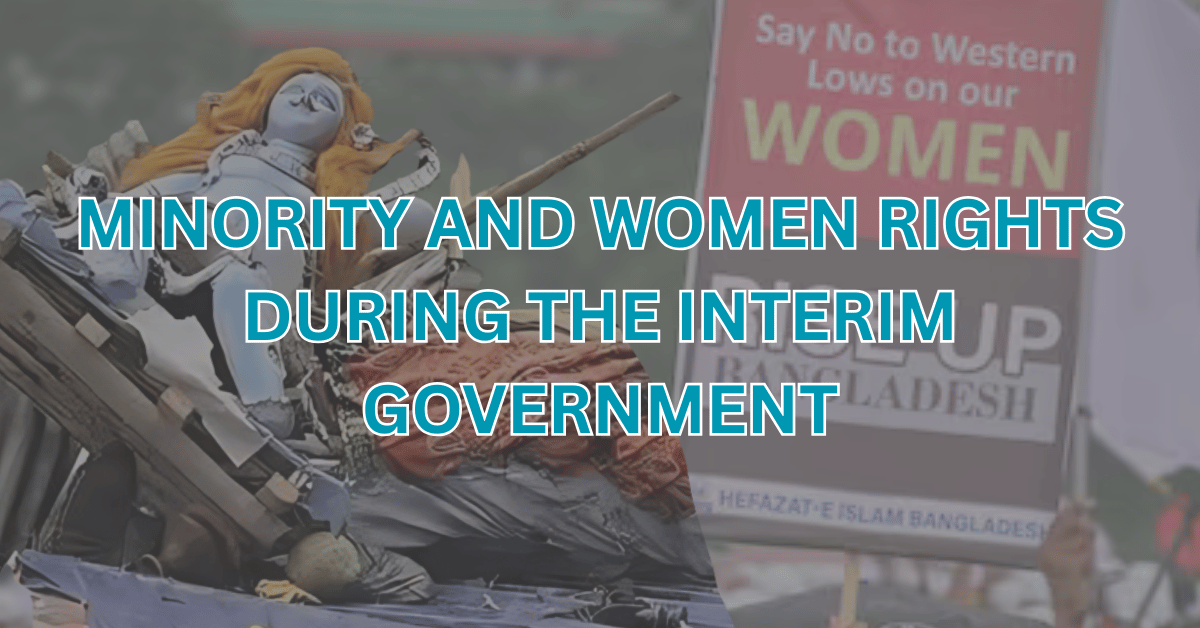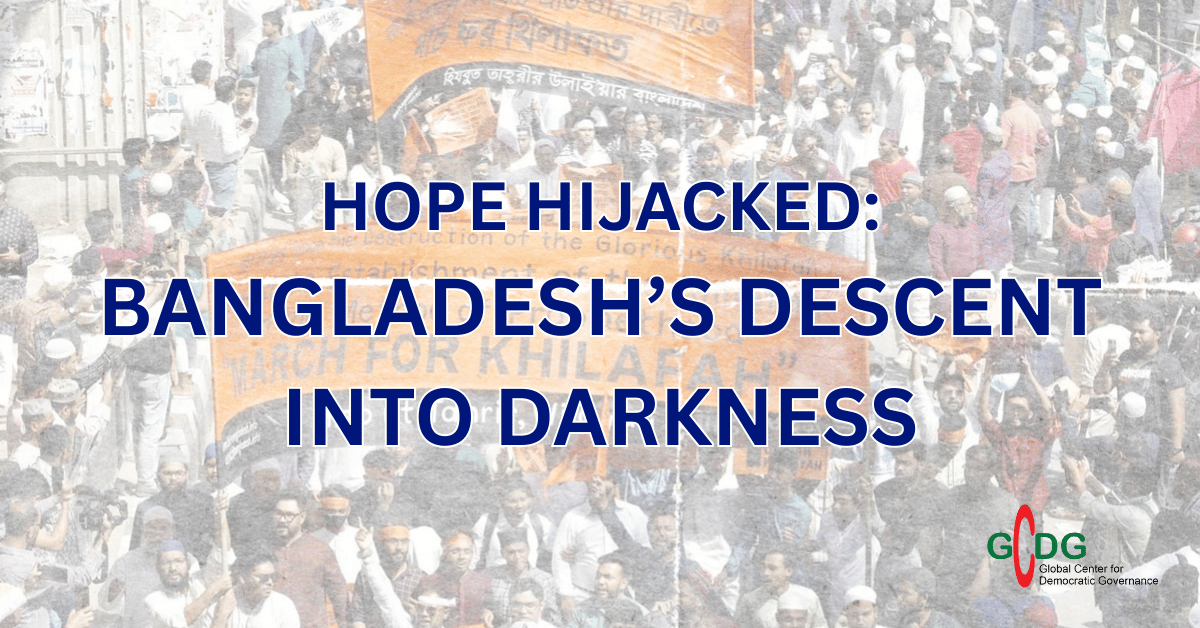The interim government’s ban on Bangladesh’s largest political party undermines democracy, empowers extremists, and threatens…
Mob Rule and Media Silence: Fascism Rises in Bangladesh
 Since August 5, 2024, Bangladesh has entered a dangerous phase of authoritarian control under the interim regime led by Dr. Muhammad Yunus. What initially appeared to be a transitional arrangement has rapidly transformed into a state-sponsored machinery of intimidation, suppression, and ideological cleansing. At the heart of this transformation lies a group known as the National Citizen Party (NCP)—an ironically named, state-sponsored mob force responsible for reshaping Bangladesh’s political and institutional landscape.
Since August 5, 2024, Bangladesh has entered a dangerous phase of authoritarian control under the interim regime led by Dr. Muhammad Yunus. What initially appeared to be a transitional arrangement has rapidly transformed into a state-sponsored machinery of intimidation, suppression, and ideological cleansing. At the heart of this transformation lies a group known as the National Citizen Party (NCP)—an ironically named, state-sponsored mob force responsible for reshaping Bangladesh’s political and institutional landscape.
The Rise of NCP: A Manufactured Mob
The NCP did not emerge organically. It was cultivated with strategic intent by the Yunus-led administration to perform tasks that the state could not do legally. Their tactics are straight from the fascist playbook: instill fear, disrupt dissent, and restructure power under the cover of public sentiment.
History warns us: fascism does not announce itself with fanfare. It arrives with silence, mobs, and laws disguised as reforms. In Bangladesh, the silence is deafening. The mobs are marching. And the constitution is being rewritten—one institution at a time.
NCP mobs, largely composed of indoctrinated youth, have been unleashed in educational institutions, courts, and media offices. First came the forcible resignation of all judges from the higher judiciary—a move unprecedented in Bangladesh’s history. Then followed a wave of institutional overhauls: the Universities, Anti-Corruption Commission, Election Commission, and Public Service Commission were all targeted, stormed by mobs or “civilian protesters,” paving the way for handpicked replacements loyal to the interim regime.
Media Blackout and Ideological Cleansing
The press, once a battleground of diverse ideas, has now been brought to its knees. While formal censorship has not been declared, an unspoken ban is now in place: no media outlet is allowed to publish articles or discussions related to the Awami League, the Liberation War, or secular nationalism. Editorial boards, once vibrant with political debate, are now paralyzed with fear. Journalists have been threatened and, in some cases, physically attacked by NCP affiliates.
The systematic silencing of voices aligned with Bangladesh’s liberation ideals indicates not just a power shift but an ideological purge. It’s an erasure of the historical memory that binds the republic together.
Fascist Symptom #1: The Mob as the State’s Arm
Classical fascism, as seen in Mussolini’s Italy or Hitler’s Germany, always deployed paramilitary mobs—Blackshirts, Brownshirts—to execute political violence while the state maintained formal deniability. The earlier version of the NCP operated under the banner of the “anti-discrimination student movement,” which led to a violent civil uprising throughout July 2024. It culminated in the so-called ‘March for Dhaka,’ a symbolic show of force eerily reminiscent of Mussolini’s ‘March on Rome.’ NCP is the Bangladeshi iteration of that mechanism. It enforces political will through intimidation, especially targeting those who support the Awami League or express secular, pro-liberation views.
Fascist Symptom #2: Gendered Violence and Fear
Perhaps the most horrific dimension of this new order is the surge in violence against women. Under the current regime, rape cases have spiked dramatically, many involving pro-Yunus arms cadres acting with impunity. Women journalists, students, and activists have been disproportionately targeted, reflecting yet another grim marker of fascism: gendered terror as a tool of social control.
In fascist regimes, women are often either hyper-idealized as passive symbols of the nation or brutally punished for dissent. In present-day Bangladesh, we see the latter manifesting at an alarming rate.
The Final Blow: Banning the Awami League
On June 10, 2025, the interim regime took its most drastic step yet: banning the Awami League, the party that led Bangladesh’s independence struggle in 1971. This action marks a defining threshold—the transition from autocratic caretakerism to full-fledged fascism.
This ban not only violates democratic norms but also symbolically declares war on the spirit of the Liberation War itself. The very ideals that birthed the Republic—secularism, inclusivity, and democratic participation—are now under siege.
Election Without a Deadline—and a Major Party
Perhaps the most alarming development is the regime’s approach to the upcoming general election. On one hand, the government remains deliberately ambiguous about an election timeline, postponing national polls originally expected by late 2025, now suggesting mid-2026 at the earliest.
On the other hand, the government has banned the Awami League, the country’s most popular and historically significant political party, from participating. This means 30–40% of the national electorate has effectively been disenfranchised.
This would be unprecedented in Bangladesh’s history—and extremely rare in global democratic practice. Even in authoritarian contexts, elections are often designed to include opposition parties as a façade of legitimacy. To ban a major, liberation-era party outright—while refusing to announce an election date—is a textbook move from fascist regimes past, but one that pushes Bangladesh into uncharted political territory.
The only comparable example might be Pakistan in 1971, where the Yahya regime refused to hand over power to the Awami League despite their electoral majority. The result was the war of independence and the birth of Bangladesh.
To hold a national election that excludes the most popular party and its support base, while suppressing media and deploying mobs to intimidate opponents, would not just delegitimize the electoral process—it would destroy the republic’s democratic foundation.
The Democratic Emergency
What is happening in Bangladesh cannot be understood as simply a crisis of governance or legality. It is a democratic emergency. When the state employs mobs to subvert institutions, suppresses the media, bans opposition parties, and controls election timelines without accountability, it fulfills every warning sign of fascist takeover.
Let us be clear: elections are not inherently democratic. Elections without inclusion, fairness, or freedom are merely rituals of control. If Bangladesh moves forward with a banned opposition and an open-ended timeline, it risks joining the ranks of historical tragedies, not modern democracies.
Resistance or Ruin?
What happens next will define Bangladesh for generations. A nation that once fought valiantly for liberation, secularism, and people’s rights is now threatened by a regime that hijacks legality, weaponizes youth, and rules by fear. The question is no longer whether Bangladesh is drifting toward fascism—it is how far down that road we already are.
History warns us: fascism does not announce itself with fanfare. It arrives with silence, mobs, and laws disguised as reforms. In Bangladesh, the silence is deafening. The mobs are marching. And the constitution is being rewritten—one institution at a time.
Fascism is not coming—it is already here. And we are being asked to normalize it.
Let it not be said that we did not notice.




Comments (0)